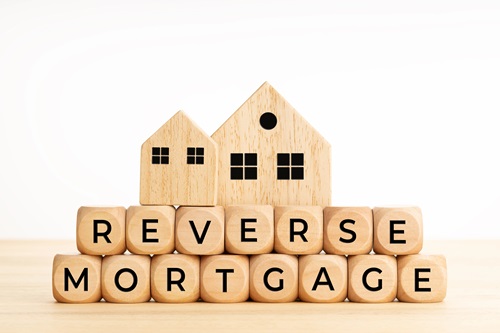
For many homeowners approaching retirement, tapping into home equity can provide the financial flexibility needed to enjoy their later years. That’s exactly where reverse mortgages come in. These unique loans allow seniors to convert part of their home’s equity into usable cash—without having to sell the house or make monthly mortgage payments.
Yet what truly sets reverse mortgages apart is a little-known but powerful feature: they are non-recourse loans. They often overlook this detail, but it plays a major role in protecting both the borrower and their heirs. So, what does that really mean, and why should it matter?
Understanding the Non-Recourse Feature
At its core, “non-recourse” means the lender cannot go after anything beyond the home itself to recover the loan. In other words, if the balance of the reverse mortgage ends up being more than the home is worth when it’s time to repay the loan, the lender cannot demand the difference from the borrower or their family. Instead, the lender accepts the home’s appraised value—typically up to 95%—as the final payment.
The loan terms includes this protection from the beginning. Unlike traditional mortgages, where heirs might find themselves responsible for covering remaining balances, reverse mortgages keep things simple and contained. The home is the only collateral, and the borrower’s savings, investments, or other assets remain safe.
Why Non-Recourse Matters in Reverse Mortgages
There are several reasons this feature stands out as a major advantage for older homeowners in Myrtle Beach SC. For starters, the housing market doesn’t always behave predictably. If home values drop and the reverse mortgage balance rises (as interest accrues over time), there’s no need to worry about falling into financial hardship because of it.
Also, let’s not forget the emotional side. Many retirees choose Myrtle Beach reverse mortgages as a way to age in place comfortably. Knowing that the loan cannot pass down debt to children or grandchildren offers peace of mind that stretches across generations.
Reverse Mortgages Help Protect Other Assets
 Reverse Mortgage in Hilton Head SC
Reverse Mortgage in Hilton Head SCPerhaps one of the most reassuring aspects of non-recourse loans is how they safeguard the borrower’s other assets. Retirement savings, life insurance payouts, and family heirlooms all remain untouched—even if the home sells for less than the loan balance. That’s because the lender accepts the home sale as full repayment, no questions asked.
And what happens if the home sells for more than what’s owed on the loan? Any leftover funds go directly to the borrower’s estate or designated heirs. The lender takes nothing extra.
Avoiding Debt for Your Heirs
No one wants to leave behind complicated financial issues for their family. Fortunately, reverse mortgages make this outcome far less likely. Since the loan is tied only to the home, heirs have clear options. They can choose to keep the home by paying off the loan at the lower of the full loan balance or 95% of the home’s appraised value. Or, they can let the lender sell it, without owing anything out of pocket.
This structure ensures that no lingering debts follow children or loved ones after the borrower passes away. That alone offers significant relief to families during what may already be a difficult time.
Reverse Mortgages Adjust to the Housing Market
It’s no secret that property values can fluctuate. While many homeowners see long-term gains, downturns in the market can happen. Because reverse mortgages are non-recourse, borrowers are not at risk of ending up “underwater” on the loan. Even if the market drops dramatically, they won’t be held liable for the difference. The loan ends with the value of the home—nothing more, nothing less.
This built-in safety net is especially helpful for seniors who want to remain in their home while using its value to cover healthcare costs, home upgrades, or everyday expenses.
When Foreclosure Happens, Heirs Are Still Protected
Sometimes, life takes an unexpected turn. If a borrower no longer lives in the home or passes away and the loan isn’t paid off, the lender may need to foreclose on the property. Even in that case, the non-recourse clause still stands.
The lender can only collect what is owed through the home sale. If any money remains after the loan is settled, it goes to the borrower’s heirs, as directed by a will or trust. This gives families a clearer understanding of what to expect and helps them avoid unexpected financial burdens during estate settlement.
Reverse Mortgages Offer More Than Cash Flow
Choosing a reverse mortgage in Myrtle Beach SC isn’t just about supplementing income. It’s also about protecting long-term financial health. The non-recourse feature provides one of the strongest layers of protection available in modern lending. For seniors considering ways to make their home work for them, this option offers a meaningful balance of freedom and security.
Whether the goal is to enjoy retirement, fund travel plans, cover healthcare costs, or simply eliminate traditional mortgage payments, reverse mortgages allow homeowners to stay in control. And because they are non-recourse by nature, they also reduce stress for family members when it’s time to settle the estate.
This is why David Stacy Reverse Mortgage Specialist works closely with every client to explain these protections clearly and guide them through each decision confidently.
Call David Stacy Reverse Mortgage Specialist now to learn how reverse mortgages can help you unlock home equity while protecting your family’s financial future.



 Reverse Mortgage in Myrtle Beach SC
Reverse Mortgage in Myrtle Beach SC
 Reverse mortgage in Myrtle Beach SC
Reverse mortgage in Myrtle Beach SC
 Reverse mortgage in Myrtle Beach SC
Reverse mortgage in Myrtle Beach SC
